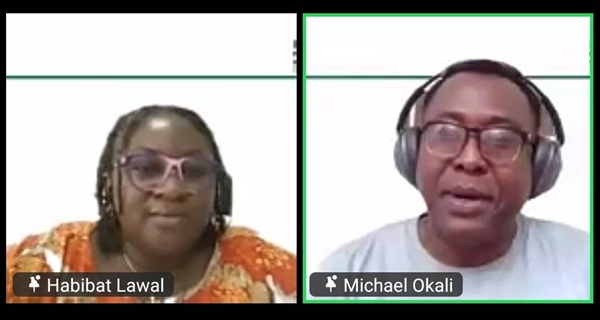
As misinformation and disinformation continue to pose serious threats to public health systems across Africa, health communication experts and public health practitioners have stressed the urgent need for coordinated, evidence-based and community-led frameworks to manage the growing crisis.
This consensus emerged at a high-level webinar hosted by Nigeria Health Watch, themed “Evidence-Based Frameworks for Networked Epidemic Management.” The virtual event brought together both national and international stakeholders, including representatives from the Nigeria Centre for Disease Control (NCDC), Pandemic Action Network, Resilience Action Network Africa (RANA) and the Africa Epidemic Response Alliance (AIRA).
In her keynote address, managing director of Nigeria Health Watch, Vivian Ihekweazu argued that fighting misinformation demands more than just correcting falsehoods – it requires empathy, long-term engagement and building trust at the grassroots.
“Managing epidemics is not just about debunking myths. It’s about understanding the confusion people experience and working with communities to create trust from the ground up,” she said.
Ihekweazu cited her organisation’s health misinformation management project, which combines social listening, fellowships, public campaigns and the use of local influencers to monitor and counter misleading narratives.
“Epidemic management is not a one-time campaign. It’s a continuous process. In that process, frameworks, trust and collaboration remain our strongest assets,” she added.
Representing the NCDC, senior communications officer and national risk communication and community engagement (RCCE) lead for both the diphtheria and mpox outbreaks, Michael Okali presented the agency’s multi-tiered approach.
He explained that NCDC’s strategy is built around three pillars: systems, stakeholders and communication channels. These are supported through platforms like HPLAB, which releases timely health advisories and supports early warning systems.
“Our work goes beyond emergency announcements. We’ve developed year-round training modules to build local stakeholder capacity,” Okali said. “We carry out community listening exercises to assess public sentiment, understand local needs, and tailor messages to specific audiences.”
He also noted the work of the National Multi-Hazard RCCE Technical Working Group, a platform with over 100 members drawn from government agencies, NGOs, and development partners. The group ensures coordinated messaging, especially during overlapping crises such as floods, epidemics, or humanitarian emergencies.
Highlighting the role of the PESO model – paid, earned, shared and owned media – Okali said that NCDC leverages a mix of communication platforms, from traditional media partners and government channels to community-based organisations and trusted local influencers.
“We don’t work in silos. We amplify trusted voices already embedded in communities. That’s how we scale credible health information in a complex media environment,” he said.
Africa director of Resilience Action Network Africa (RANA), Aggrey Aluso underscored the scale and sophistication of misinformation campaigns. Recalling his recent experience at the Intergovernmental Negotiation on the Pandemic Treaty in Geneva, he warned that disinformation actors are often well-coordinated and disruptive.
“Disinformation is strategic. During the Geneva event, anti-vaccine advocates were so well-organised, they caught us off guard,” Aluso shared. “Our responses must be just as intentional, with proactive storytelling and preparedness.”
Aluso advocated for distributed leadership, decentralised communication, and consistent messaging across diverse platforms and regions. He called on organisations to adopt flexible frameworks that respond to local contexts without sacrificing accuracy and unity.
Providing a continental perspective, coordinator of the Africa Epidemic Response Alliance (AIRA), Elodie Ho introduced a practical model based on four key pillars: identify, simplify, amplify and quantify.
According to her, this model is designed to understand how information flows, who the trusted voices are, and which tools work best in different countries.
“It’s not enough to just listen. We must understand the network dynamics – what works, who influences and how to adapt continuously. Evidence must guide us,” she said.
She highlighted that while feedback mechanisms are critical, many countries still lack consistent methodologies, limiting their effectiveness in tackling the root causes of misinformation.
Throughout the session, participants reinforced the idea that networked epidemic communication must be collaborative, culturally relevant, data-driven, and adaptive. There was unanimous agreement that building trust – not just broadcasting information – is essential for success.
The webinar ended with a strong call to action: renewed partnerships, investment in local communication structures, and deliberate strategies to elevate trusted local voices. Participants were encouraged to keep the momentum going by sharing insights using the hashtag #HealthHackTech.
The urgency of this conversation comes against the backdrop of rising global concerns. The unchecked spread of false or misleading information – whether deliberate or accidental – can have devastating consequences. It undermines trust in public health systems, fosters vaccine hesitancy, weakens social cohesion and jeopardises democratic stability.
Experts argue that effective solutions must be rooted in trust, evidence, and community participation. That means strengthening media literacy, supporting local journalists, investing in communication infrastructure and building public resilience to disinformation.
The Nigeria Health Watch webinar offered valuable insights and practical solutions, showing how evidence-based frameworks and coordinated partnerships can shape better responses to health crises.
As the world navigates increasingly complex public health challenges, the success of such collaborative, grassroots approaches may well determine how quickly and effectively African countries can respond to future health threats.

